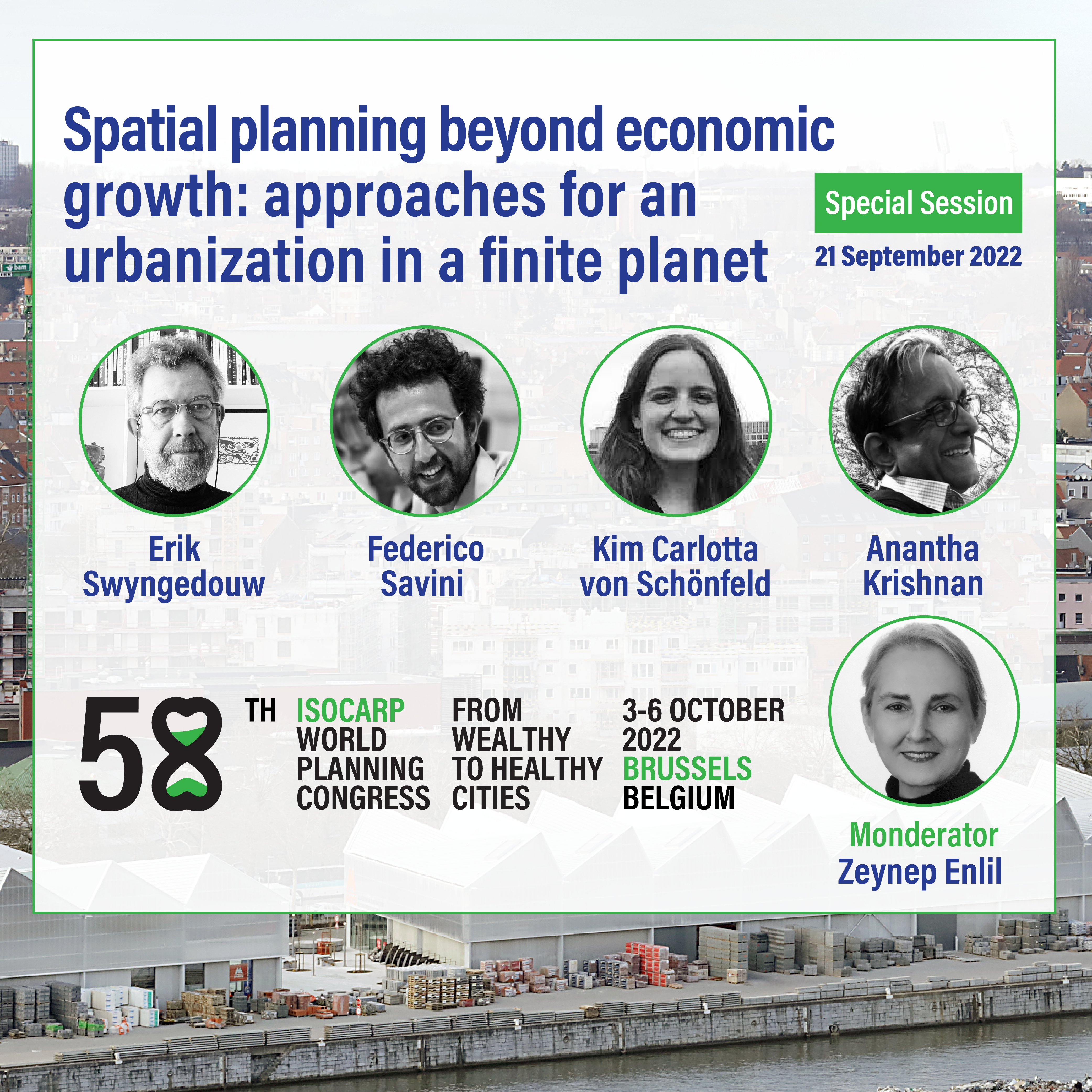The spatial and social well-being of cities is increasingly dependent on their economic growth. Yet, this growth comes at costs of material depletion and social conflicts. How can cities thrive while decreasing their ecological impact? How does a post growth approach to planning differ from existent approaches to sustainable development? Is a post-growth approach really possible? How do ecological priorities link to social justice goals in post growth planning? What approaches can spatial planners use in order to pursue social well-being, human health and spatial qualities while decreasing the pressure of cities on the environment?
Moderator: Zeynep Enlil
Panelists:

The spatial and social well-being of cities is increasingly dependent on their economic growth. Yet, this growth comes at costs of material depletion and social conflicts. How can cities thrive while decreasing their ecological impact? How does a post growth approach to planning differ from existent approaches to sustainable development? Is a post-growth approach really possible? How do ecological priorities link to social justice goals in post growth planning? What approaches can spatial planners use in order to pursue social well-being, human health and spatial qualities while decreasing the pressure of cities on the environment?
Moderator: Zeynep Enlil
Panelists:
Erik Swyngedouw, University of ManchesterFederico Savini, University of AmsterdamKim Carlotta van Schönfeld, Visiting Researcher at the CITCEM, University of PortoAnantha Krishnan, Secretary General of Urban Economy Forum Virtual Room 58th ISOCARP World Planning Congress in Brussels, Belgium congress@isocarp.orgTechnical Issues?
If you're experiencing playback problems, try adjusting the quality or refreshing the page.
Questions for Speakers?
Use the Q&A tab to submit questions that may be addressed in follow-up sessions.